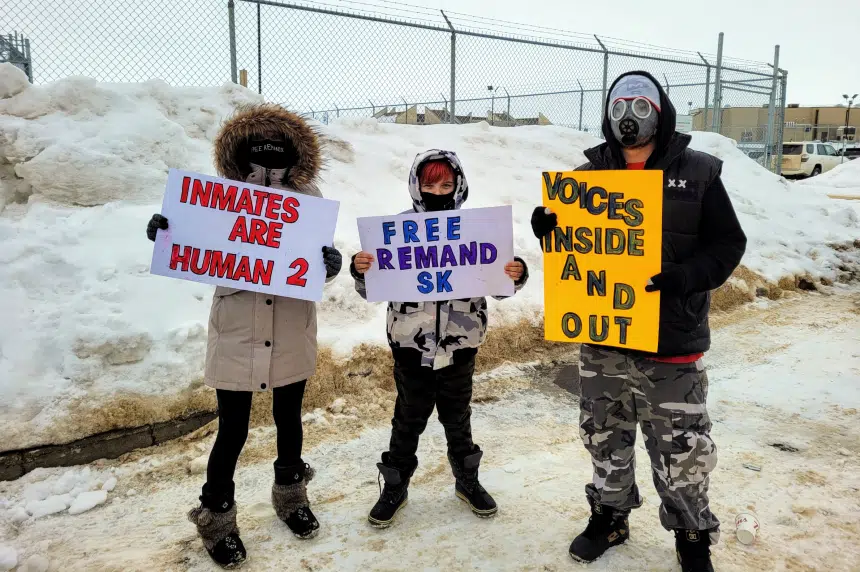Jennifer Lounsbury feels it’s just a matter of time before her son tests positive for COVID-19.
Her son, Alex, is on remand awaiting sentencing for auto theft at the Saskatoon Correctional Centre. He has a sore throat as more and more people around him fall ill with the coronavirus.
“A lot of them want to run away,” she said. “What are they supposed to do? They’re sitting there waiting to get the (coronavirus).”
Lounsbury said her son’s living conditions in the Echo 2 unit is housing 35 inmates instead of the intended 30 people.
Inmates share phones, sinks, toilets and a basic kitchen. She said her son knows of two people immediately next to him who have tested positive with six others in the unit also testing positive recently.
“I refuse to leave until somebody does something,” Lounsbury said outside jail.
According to the Ministry of Corrections, Policing and Public Safety, more than 130 staff and inmates at the Saskatoon Correctional Centre have tested positive for COVID-19 in the past 10 days.
With roughly a quarter of inmates testing positive for COVID-19, calls to reduce the population inside the jail are intensifying.
“If we don’t change course, it wouldn’t surprise me if we see an outbreak at all of our prison institutions across Saskatchewan,” said Shawn Fraser, CEO of the John Howard Society of Saskatchewan.
The community-based advocacy group joined forces with the Elizabeth Fry Society, Community Legal Assistance Services for Saskatoon Inner City Inc. (CLASSIC) and others to send a joint letter signed by lawyers and social workers across the province asking for swift action to stop the outbreak.
The first point of action is to reduce the population, mainly inmates with compromised immune systems, and those who are elderly, non-violent or are low-risk offenders.
“We need to really turn off the tap with remand,” Fraser said. “Remand is meant to be a last resort. I feel often in Saskatchewan we don’t treat it as a last resort.”
Fraser said the outbreak is revealing troubles in the provincial justice system that rely too much on remand. According to Fraser, Saskatchewan has twice as many people in remand compared to the national average. Roughly 100 people per 100,000 population are on remand, where the national average hovers around 50 per 100,000 people.
Chantelle Reimer went to the jail to picket outside the main gate. Her fiance, Tyler Magnus, is on remand due to an alleged breach of probation. She worries if she will ever see him again.
“Between the bunks, it’s two feet, so there’s no isolating … there’s no nothing,” Reimer said of the grim updates she’s receiving.
Of the 20 people in Magnus’ unit, 16 have tested positive for COVID-19. Magnus, while testing negative after his last round of testing, is coughing more often while experiencing a sore throat.
“It’s not nice in there, according to him. It’s depressing,” she said. “It hurts a lot.
“The dogs in the SPCA, they’re being treated better than these guys are.”
Minister defends response
Minister of Corrections Christine Tell says precautions were in place to try to prevent transmission.
They include a 14-day isolation period for offenders arriving at the facility, and masks for both inmates and correctional officers. Officers have been masking up since August.
Tell explained that overcrowding in provincial jails has been a problem for years, but there is only so much that can be done to space out inmates.
“We only have so much room,” she said. “We can’t guarantee social distancing in a correctional facility, but we do try and keep numbers as low as we possibly can.”
Tell confirmed two modular living units being set up at the Saskatoon and Regina correctional centres will be in operation soon, but she didn’t specify if they would be used to space out inmates or for isolating those who test positive for COVID-19.
Tell said releasing non-violent inmates into the community to reduce the jail population is not an option, explaining the government doesn’t have the authority.











